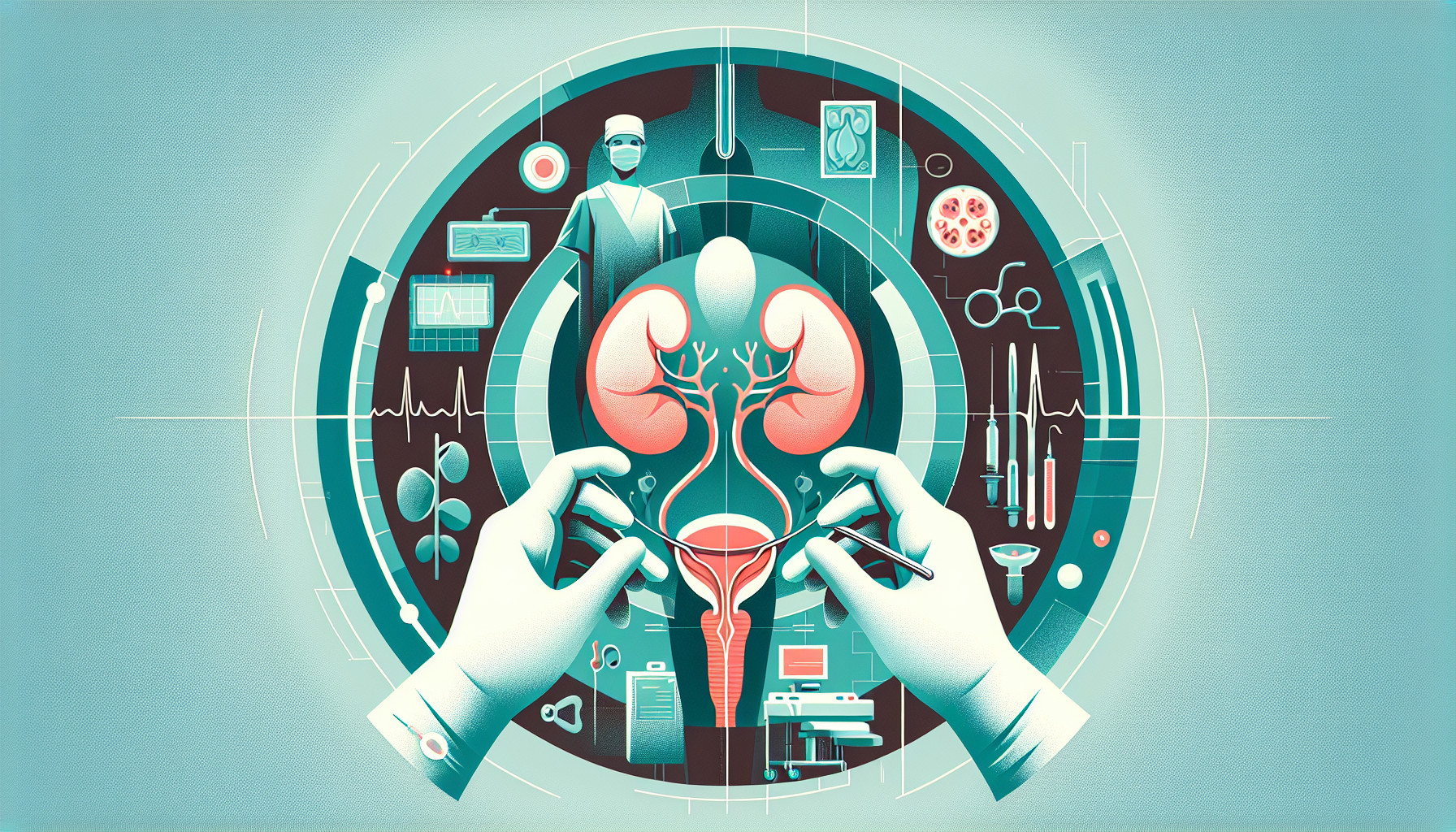Our Summary
This research paper discusses the challenges involved in treating a chronic bladder condition called interstitial cystitis/bladder pain syndrome (IC/BPS). This condition is difficult to manage and severely impacts the patients’ quality of life. The researchers believe that there are two types of IC/BPS, one with Hunner lesions (a type of bladder lesion) and one without.
The researchers suggest that when Hunner lesions are present, the first line of treatment should be to completely remove these lesions using a procedure called transurethral ablation. This procedure has shown to be effective in controlling the symptoms. However, the lesions often come back, which is a limitation of this treatment.
When it comes to removing the lesions, the researchers found that two techniques, resection and coagulation, are equally effective in providing relief from symptoms and preventing the lesions from returning.
In severe cases of IC/BPS where other treatments have failed, reconstructive surgery may be necessary. This is especially true for patients who have clear Hunner lesions and a small bladder capacity and have not responded to previous treatments. The researchers stress the importance of considering the expectations and preferences of the patients when deciding on treatment options.
Based on their review of existing research and their own clinical experiences, the researchers believe that a procedure called subtotal cystectomy (partial removal of the bladder) followed by bladder augmentation (increasing the size of the bladder) is a safe and effective surgical option. This approach is designed to improve the quality of life for patients with Hunner-type IC/BPS by specifically targeting the Hunner lesions.
FAQs
- What is the recommended initial intervention for Hunner-type IC/BPS?
- When does reconstructive surgery become necessary for patients with IC/BPS?
- What is considered a safe and effective surgical option for Hunner-type IC based on the literature and clinical experiences?
Doctor’s Tip
A helpful tip a doctor might tell a patient about bladder surgery is to carefully follow post-operative instructions provided by the medical team, including taking prescribed medications, avoiding strenuous activities, and attending follow-up appointments. It is important to communicate any concerns or changes in symptoms to your healthcare provider promptly to ensure a successful recovery.
Suitable For
Patients with interstitial cystitis/bladder pain syndrome (IC/BPS) who have not responded to conservative treatments and have clear Hunner lesions or end-stage disease are typically recommended for bladder surgery. This includes patients with small bladder capacity, severe symptoms, and a significant impact on quality of life. Reconstructive surgery, such as subtotal cystectomy followed by bladder augmentation, may be considered in these cases to improve symptoms and quality of life. Patient selection and considering individual preferences are essential in determining the most appropriate surgical approach for each patient.
Timeline
Before bladder surgery, a patient may experience symptoms such as pelvic pain, urinary urgency, frequency, and nocturia. They may undergo various diagnostic tests, such as cystoscopy, urodynamics, and bladder biopsy, to confirm the diagnosis of interstitial cystitis/bladder pain syndrome (IC/BPS). Conservative treatments, such as oral medications, physical therapy, and bladder instillations, may be attempted to manage symptoms, but if these are ineffective, surgical intervention may be considered.
After bladder surgery, the patient may experience temporary discomfort, urinary frequency, and urgency. They may be instructed to avoid strenuous activities and to follow a specific diet to promote healing. Follow-up appointments with the urologist will be necessary to monitor for any complications and to assess the effectiveness of the surgery. With successful bladder surgery, the patient may experience improvement in symptoms and quality of life.
What to Ask Your Doctor
- What type of bladder surgery is being recommended for my condition?
- What are the potential risks and complications associated with this surgery?
- What is the expected recovery time and post-operative care for this procedure?
- How likely is it that I will experience a recurrence of symptoms after the surgery?
- Are there alternative treatment options available for my condition?
- What are the long-term outcomes and success rates of this surgery for patients with similar conditions?
- How will this surgery impact my bladder function and overall quality of life?
- Are there any lifestyle changes or modifications that I will need to make after the surgery?
- How many times has the surgeon performed this specific type of bladder surgery, and what is their success rate?
- Are there any support groups or resources available for patients undergoing bladder surgery for IC/BPS?
Reference
Authors: Yu J, Lee CU, Lee KS, Ko KJ. Journal: Low Urin Tract Symptoms. 2023 Nov;15(6):216-224. doi: 10.1111/luts.12505. Epub 2023 Sep 26. PMID: 37750459
